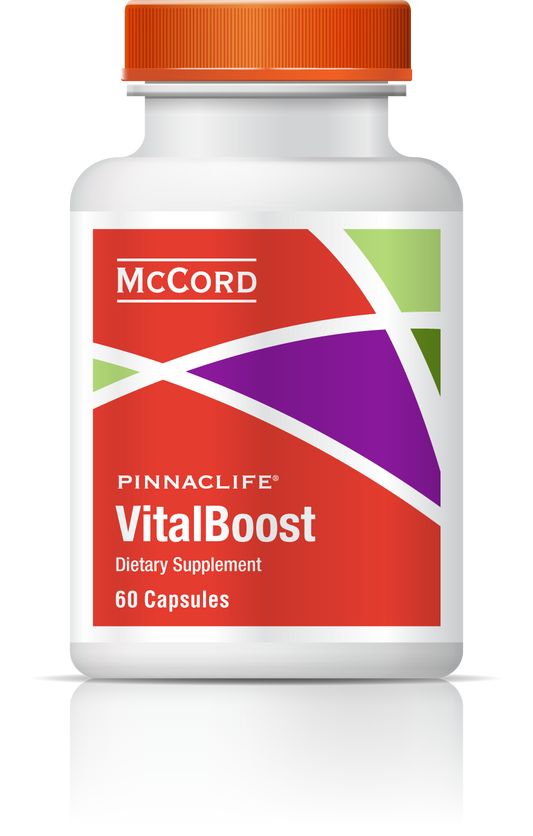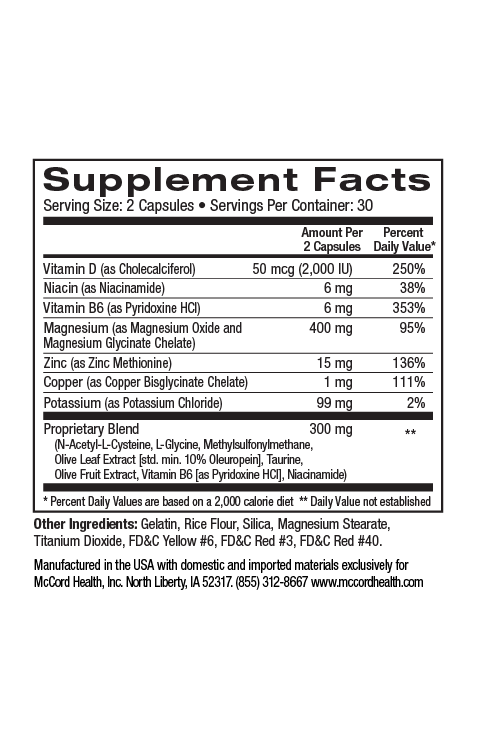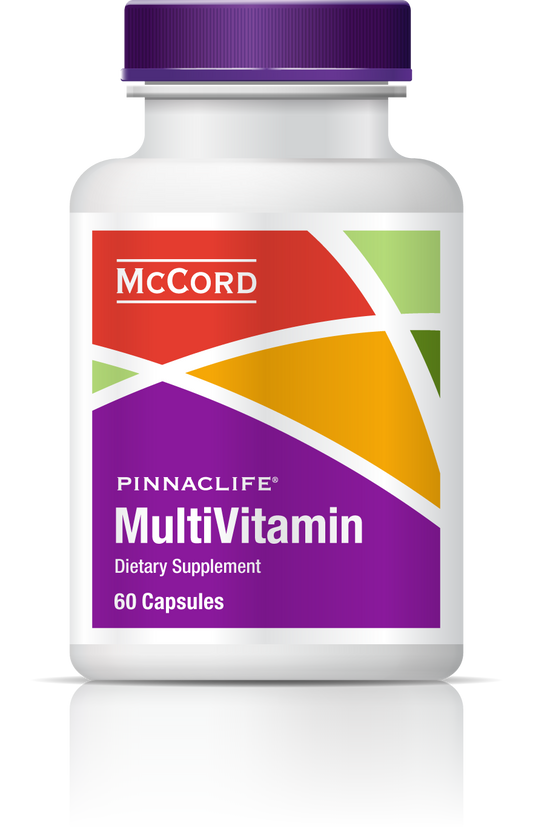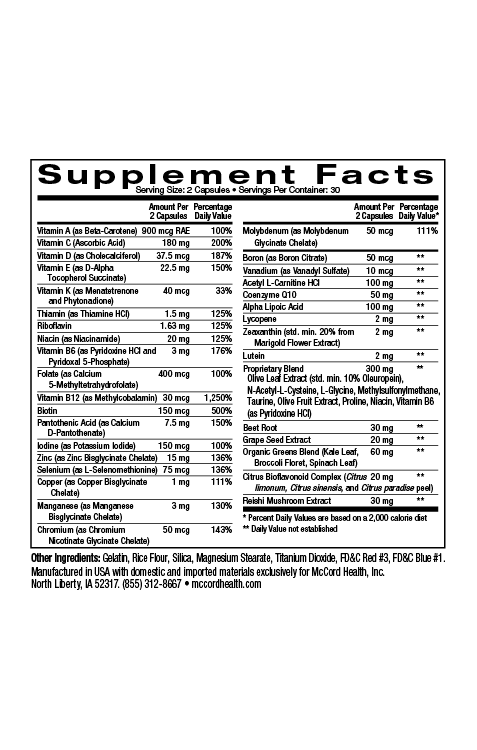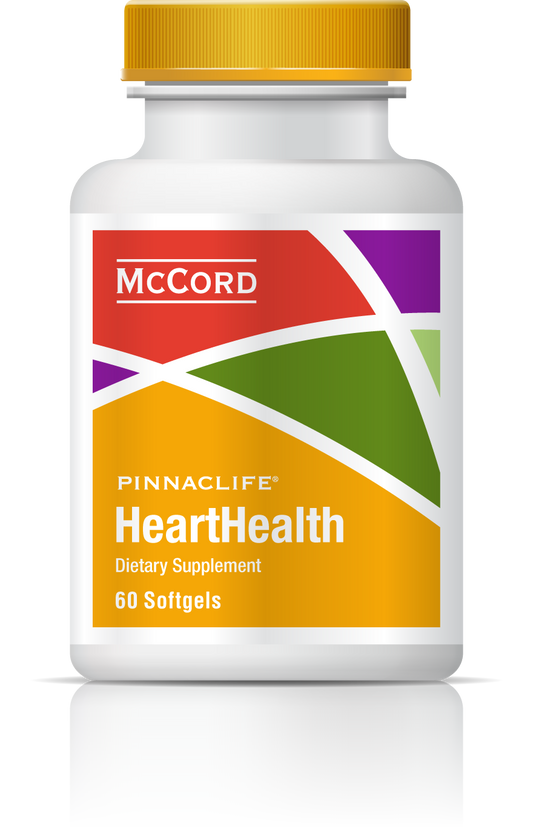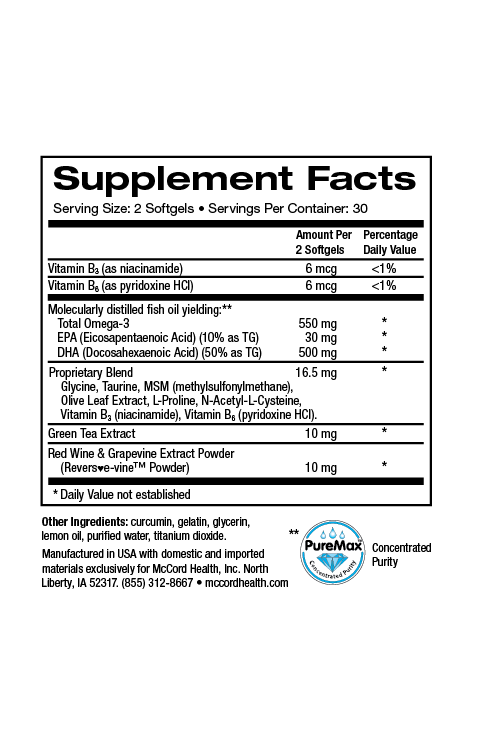Mitochondria are known as the powerhouses of cells because they play a critical role in metabolism by producing energy. Most cells have a circadian clock that oscillates every 24 hours, and this rhythm influences sleep/wake cycles. Evidence indicates that metabolic and circadian processes are interconnected, and that greater metabolic activity and/or magnesium depletion can lead to oxidative stress that can damage cells and mitochondria, as well as result in disease. Lack of sleep due to magnesium depletion or other factors can also result in serious health problems including cardiovascular disease. Melatonin found in SleepHealth protects the circadian rhythm and mitochondria, and protects cells against oxidative stress along with many of the beneficial ingredients included in Proprietary Blend.
- Mitochondria generate energy and have important roles in metabolism, cell signaling and inflammation
- The circadian rhythm influences almost all biological systems including the sleep/wake cycle, and evidence indicates that circadian and metabolic processes are linked
- Disruption of the circadian control mechanisms, or misalignment of circadian rhythms with the 24-hour cycle can have adverse consequences for sleep and other health aspects
- Damaged mitochondria and/or magnesium depletion results in oxidative stress that also has important health consequences including cardiovascular disease
- Magnesium helps maintain circadian rhythms and melatonin protects mitochondria, circadian rhythms and protects against oxidative stress and inflammation along with other important ingredients in Proprietary Blend and SleepHealth
Mitochondria are organelles found in the body’s cells that generate energy in the form of ATP. They are known as the powerhouses of cells due to this important metabolic function. In addition to generating energy, mitochondria play critical roles in other critical cellular processes including:
- The production of free radicals known as reactive oxygen species (ROS)
- The regulation of cellular metabolism
- Fatty acid synthesis
- Calcium signaling
- Programmed cell death (apoptosis)
- Inflammation
- Immune signaling1,2
Many cells have a time-sensing mechanism (or clock) called a circadian oscillator that is coordinated by a central clock located in the brain called the suprachiasmatic nuclei. Almost all biological systems, most notably sleep and wake cycles exhibit circadian rhythmicity. Circadian rhythms persist in the absence of environmental time cues, but one of the biggest triggers for regulating this rhythm is natural light. However, with artificial light, an altered circadian rhythm can occur3,4.
Melatonin Helps Protect Mitochondria
In humans, the normal period of the circadian oscillation is approximately 24 hours. Disruption of circadian control mechanisms or misalignment between internal circadian rhythms and the 24-hour outside environment may result in adverse consequences for sleep and many other health aspects including metabolism dysfunction, cognitive impairment and cardiovascular abnormalities5. Melatonin found in Pinnaclife® SleepHealth with Proprietary Blend helps preserve the natural circadian rhythm of cells and helps protect mitochondria6,7.
Damaged or dysfunctional mitochondria and lack of sleep have been associated with aging and various conditions and diseases including inflammation, diabetes, cardiovascular disease, multiple sclerosis and Alzheimer’s disease8-11. Magnesium depletion has also been associated with cardiovascular disease and sleep impairment12,13. In addition, sleep deprivation has been associated with oxidative stress and decreased mitochondrial energy metabolism. Sleep deprivation has also been associated with altered expression of genes related to responses to stress and inflammation as well as various signaling pathways14.
Recent studies have demonstrated that the circadian clock machinery interacts with sirtuin deacetylase (SIRT) enzymes that regulate mitochondrial functions. This indicates that there is a strong interconnection between circadian and metabolic processes, indicated by the fact that humans have more metabolic regulation in the morning than in the evening, which makes sense since humans are normally more active in the day than the evening and night time (especially when they sleep)3,15.
More metabolic activity during the day also means more free-radicals including reactive oxygen species (ROS) produced (as side products of metabolism) that can cause oxidative stress. Oxidative stress is linked with magnesium depletion16 and results from the inability of cells to eliminate ROS using the natural defense system that includes defense enzymes such as superoxide dismutase (SOD). Free radical damage can involve damage to DNA, proteins, lipids and organelles including mitochondria17.
Melatonin Activates a Mitochondrial Antioxidant Defense Enzyme
SleepHealth contains Proprietary Blend that includes the small molecule olive polyphenols with potent antioxidant activities, hydroxytyrosol and oleuropein, as well as the powerful antioxidants, N-acetylcysteine, taurine, and methylsulfonylmethane18-21. Hydroxytyrosol activates the critical protein factor, FOXO3a that turns on important antioxidant defense enzymes including manganese(Mn)SOD that is localized in the mitochondria23,24. In addition, N-acetylcysteine and melatonin have been shown to activate MnSOD25,26.
Aged, damaged or dysfunctional mitochondria also produce greater amounts of ROS that may lead to oxidative stress. In contrast, when mitochondria are healthy and ROS levels are normal, ROS are important for regulating cellular signaling27. Interestingly, increasing evidence suggests that energy metabolism and cellular antioxidant mechanisms that defend against oxidative damage are coordinated by the circadian clock3.
Along with preserving the circadian rhythm, melatonin is a potent antioxidant7. In fact, melatonin prevents mitochondrial dysfunction due to oxidative damage by preserving an important lipid found in mitochondria called cardiolipin. Cardiolipin abnormalities have been associated with mitochondrial dysfunction of pathological conditions as well as aging28.
Pinnaclife® SleepHealth with Proprietary Blend http://www.olivamine.com also includes magnesium that has been shown to have beneficial effects on circadian rhythms and mitochondria as well as improve sleep12,13. SleepHealth includes impeccably sourced ingredients that have undergone rigorous scientific review to prove that they renew, restore and repair cells.
References
- Mitochondrion 2016; 30: 105-116.
- J Cell Sci 012; 125 (5): 807-815
- Front Gen 2018; 9: 452: 1-8.
- Antioxid Redox Signal 2014; 20(18): 2982-2996.
- Neurol Clin 2012; 30(4): 1167-1191.
- Curr Neuropharmacol 2017; 15: 434-43.
- Int J Mol Sci 2016; 17: 2124, 1-21.
- J Hematol Oncol 2013; 6: 1-19.
- Biol 2019; 8: 48, 1-5.
- Nat Sci Sleep 2017; 9: 151-161.
- Sleep Med 2013; 14(3): 229-236.
- Open Heart 2018; 5: e000775, 1-10.
- Nutrients 2018; 10: 1354, 1-11.
- J Psychiatr Res 2010; 44(12): 775-780.
- Cell Metabol 2018; 27: 657-666.
- Magnes Res 2008; 21(2): 124-130.
- Curr Neuropharmacol 2009; 7: 65-74.
- J Agric Food Chem 2011; 59: 4473-4482.
- Sci Pharm 2010; 78: 133-154.
- Amino Acids 2004; 26: 203-207.
- Nutrients 2017; 9(3): 290:1-21.
- Life Sci 2015; 121: 110-116.
- Age 2012; 34: 95-109.
- Mitochondrion 2010; 10(4): 342-349.
- Cancer Res 2007; 67 (13): 6392-6399.
- Life Sci 2016; 145: 34-41.
- Nature 2006; 443: 787-794.
- Cells 2019; 8: 728, 1-21.

